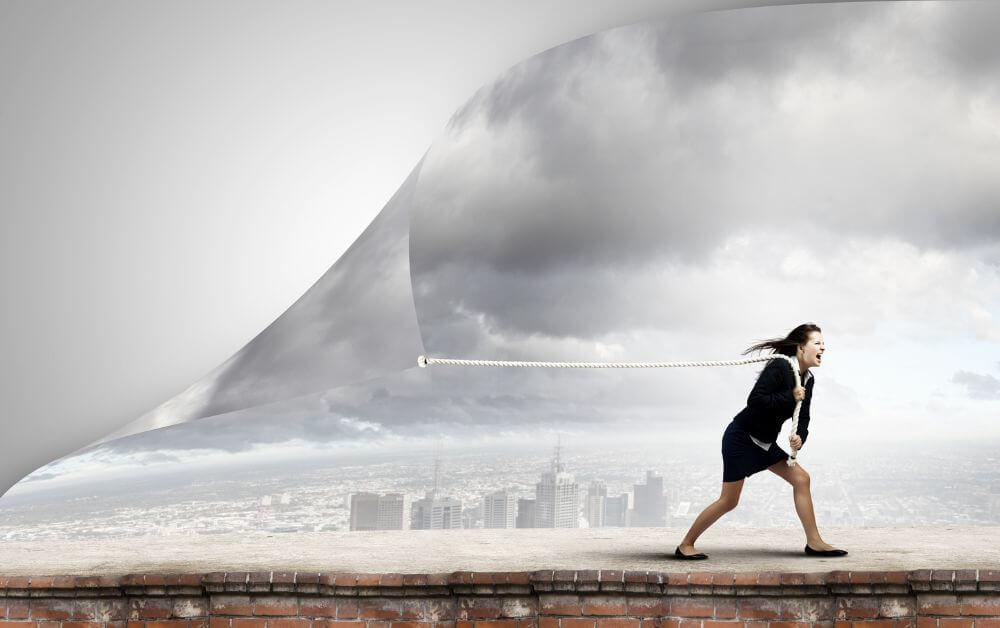Today’s insights are brought to you by my colleague and futurist, Dean van Leeuwen.
In 1958 Jack Steele, coined the word bionic, blending the words biology and electronic. This was popularised by the 1970s U.S. television series The Six Million Dollar Man and The Bionic Woman. All these stories had a central theme. Humans are given superhuman powers by combining their human capabilities with mechanical implants.
Today technology has made being bionic a reality. But instead of the superhuman, we are seeing the emergence of superhuman organisations that augment human capabilities with machines to deliver enhanced experiences, greater innovation, and superior results.
As machines and AI become omnipresent, the role of humans is changing. Capturing new value will require a massive redesign of legacy business processes. This is where many organisations struggle, while bionic organisations design for human-machine collaboration by focusing primarily on developing seven very human skills machines cannot emulate.
Here’s a real-life example of an organisation using the seven human skills to be bionic…
How the ocean clean-up is Being Bionic.
When the Ocean Cleanup’s CEO Boyan Slat was 16, he went scuba diving in the Mediterranean Sea and noticed more plastic bags in the water than jellyfish.
Now if Boyan was an AI-driven autonomous robotic scuba diver it may have identified the bags but wouldn’t have cared.
CURIOSITY – The confidence to explore the new and the skills to ask important questions.
Boyan’s curiosity led him to discover that there are 5 trillion pieces of plastic littering our Oceans, almost 25 billion tonnes. This trash accumulates in 5 garbage patches, the largest being the Great Pacific Garbage Patch, located between Hawaii and California, which is now reputedly the size of France or Texas.
EMPATHY – Caring enough to discover what is wrong and having the passion and energy to find a better way.
Boyan’s empathy drove him to start The Ocean Cleanup.
CREATIVITY – To find exciting and new solutions.
His creativity led him to invent a V-shaped array, a floating barrier that captures plastic without harming marine life.
INTUITION – Sensing you may have it wrong and be willing to experiment with new ideas.
His intuition helped him to understand that “If you try to fight the ocean, you will lose.” so the Ocean Cleanup Array was designed to be as flexible as possible. Allowing it to move along with the waves, “which is key in ensuring the structure will be able to survive the most extreme conditions,” says Boyan.
INSPIRE – Getting others to join crazy adventures even those considered impossible.
His passionate quest to clean oceans of plastic has inspired millions of people to back him and his business.
COLLABORATE – Work with people across ecosystems and sharing success.
Boyan has been collaborating and partnering with big and small organisations knowing he cannot succeed by going it alone.
RESILIENCE – Learning from failure and the ability to bounce back quickly following setbacks.
His resilience has helped him to continue developing new ideas and solutions even after many people have decried his quest to remove billions of tons of plastic from our oceans.
Building a Bionic Business requires that organisations focus on identifying and enhancing these seven skills in their workforce.
Read more about Boyan Slat’s ocean clean-up here…
Want to know more? Chat with us about our team’s ‘Thriving in a Perfect Storm’ framework where we help our clients understand the 4 critical strategies of companies (being bionic is one of them) who are positioned to take advantage of the opportunities that the next few years of disruption can provide.
Helping you and your team move beyond a fear of change and crisis response, into a mentality of opportunity, excitement, and thriving.
Dean van Leeuwen is the co-founder of TomorrowToday Consulting – a futurist consultancy working with leading organisations around the world. He is an expert on global trends, innovation, and strategic business transformation.
You can access Dean’s latest research on ‘Closing the Innovation Gap – The 7 strategic and cultural essentials that separate successful large-company innovator’s here or chat with us about our ‘Full blown innovation’ keynote presentation.


